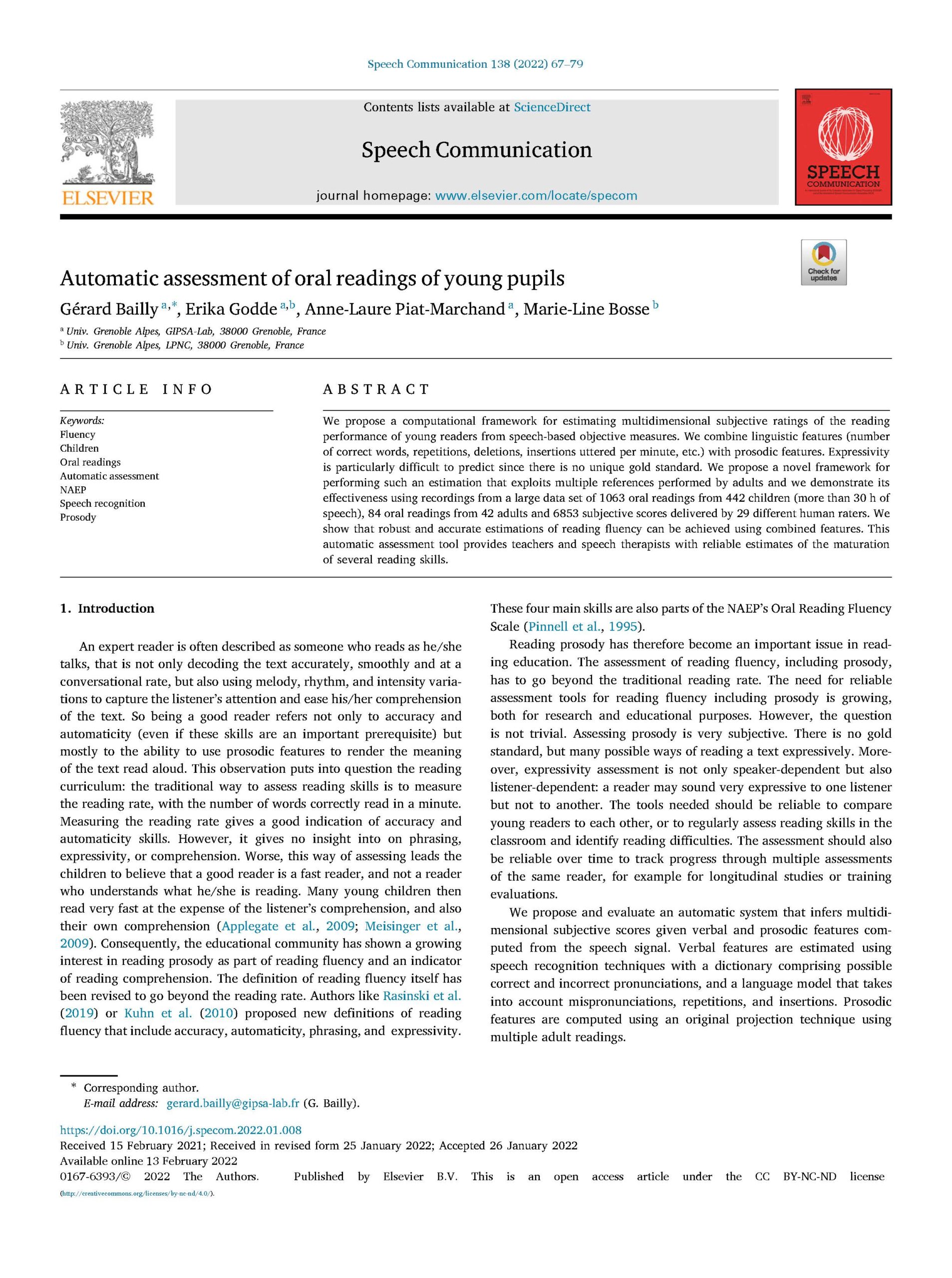We propose a computational framework for estimating multidimensional subjective ratings of the reading performance of young readers from speech-based objective measures. We combine linguistic features (number of correct words, repetitions, deletions, insertions uttered per minute, etc.) with prosodic features. Expressivity is particularly difficult to predict since there is no unique gold standard. We propose a novel framework for performing such an estimation that exploits multiple references performed by adults and we demonstrate its effectiveness using recordings from a large data set of 1063 oral readings from 442 children (more than 30 h of speech), 84 oral readings from 42 adults and 6853 subjective scores delivered by 29 different human raters. We show that robust and accurate estimations of reading fluency can be achieved using combined features. This automatic assessment tool provides teachers and speech therapists with reliable estimates of the maturation of several reading skills.
Automatic assessment of oral readings of young pupils
